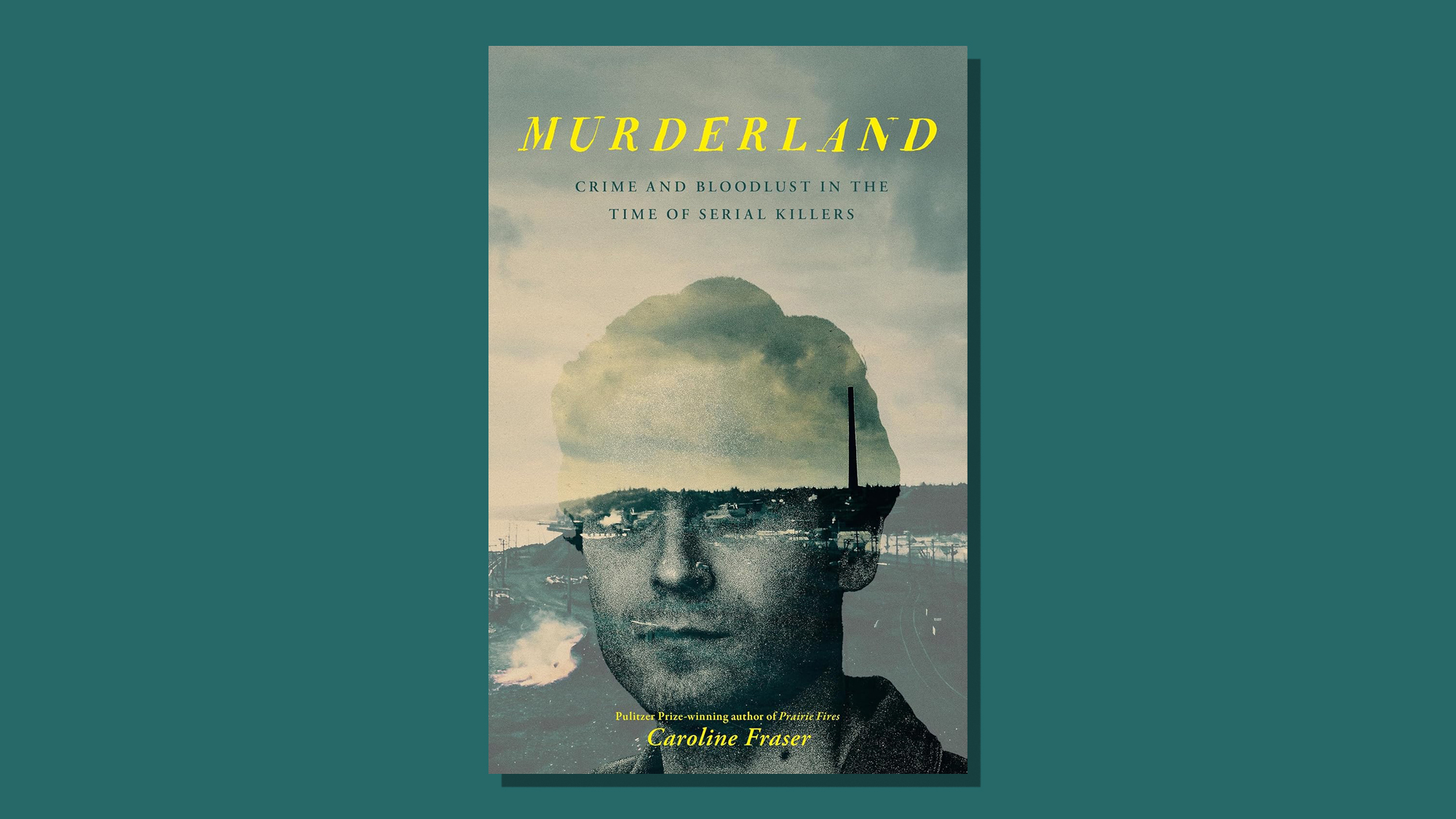Murderland: a 'hauntingly compulsive' book
Caroline Fraser sets out a 'compelling theory' that toxins were to blame for the 1970s serial killer epidemic

A free daily email with the biggest news stories of the day – and the best features from TheWeek.com
You are now subscribed
Your newsletter sign-up was successful
In the 1970s and 1980s, America's Pacific Northwest was home to a remarkable number of serial killers, said Dorian Lynskey in The Guardian. The "charming, extremely intelligent" Ted Bundy grew up in the port city of Tacoma, Washington. Gary Ridgway (aka the Green River Killer) lived there too, and Charles Manson spent five years in jail in the city before "starting his Family" in California. Meanwhile, Randall Woodfield, the I-5 Killer, lived not far away in Oregon.
In her "hauntingly compulsive" book, journalist Caroline Fraser (herself a native of Tacoma) argues that this cluster was more than pure accident. Just outside Tacoma was the notorious Asarco smelting facility, which for decades pumped out lead and other chemicals, contaminating air and water. (It was responsible for the infamous "Aroma of Tacoma".) Exposure to these toxins, Fraser suggests, increased the population's propensity for violence. Washington's murder rate in the mid-1970s was "almost six times the national average"; Tacoma's was higher still. Mixing memoir, biography and history, "Murderland" is a book that "gets into your blood".
The "lead-crime hypothesis" isn't new, said Francesca Angelini in The Sunday Times. "Epidemiologists have found an almost perfect correlation between the rise and fall of lead in the environment and the rise and fall in crime." Where Fraser breaks new ground is in applying this theory to some of America's most notorious serial killers. Her book, while reading like "a true crime thriller", doubles as a polemic about the rapacious greed of heavy industry: for decades, despite mounting evidence to the contrary, leaded-gasoline lobbyists insisted it "presented no problems". Other things can help explain the murder spike of the 1970s – including the popularity of hitchhiking – but Fraser "does build a compelling theory" about pollution.
The Week
Escape your echo chamber. Get the facts behind the news, plus analysis from multiple perspectives.

Sign up for The Week's Free Newsletters
From our morning news briefing to a weekly Good News Newsletter, get the best of The Week delivered directly to your inbox.
From our morning news briefing to a weekly Good News Newsletter, get the best of The Week delivered directly to your inbox.
"Murderland" is in some ways a "maddening" book, said Timothy Egan in The New York Times. "Fraser jumps around in time and topic", alighting one moment on "Rommel's desert campaign in WWII", at another on the "bubble-gum pop songs she grew up with". And despite the plethora of data, her thesis leaves many unanswered questions. "What about the many thousands of people who also lived under Asarco's toxic plume and went on to have normal lives?" Fraser mostly gets away with it "because she's such a gifted writer". "Murderland" works best as a "literary" narrative – a story about "crimes of industry choking the life out of the natural world, spawning crimes of the heart".
Available at The Week Bookshop
A free daily email with the biggest news stories of the day – and the best features from TheWeek.com
-
 How the FCC’s ‘equal time’ rule works
How the FCC’s ‘equal time’ rule worksIn the Spotlight The law is at the heart of the Colbert-CBS conflict
-
 What is the endgame in the DHS shutdown?
What is the endgame in the DHS shutdown?Today’s Big Question Democrats want to rein in ICE’s immigration crackdown
-
 ‘Poor time management isn’t just an inconvenience’
‘Poor time management isn’t just an inconvenience’Instant Opinion Opinion, comment and editorials of the day
-
 Bad Bunny’s Super Bowl: A win for unity
Bad Bunny’s Super Bowl: A win for unityFeature The global superstar's halftime show was a celebration for everyone to enjoy
-
 Book reviews: ‘Bonfire of the Murdochs’ and ‘The Typewriter and the Guillotine’
Book reviews: ‘Bonfire of the Murdochs’ and ‘The Typewriter and the Guillotine’Feature New insights into the Murdoch family’s turmoil and a renowned journalist’s time in pre-World War II Paris
-
 6 exquisite homes with vast acreage
6 exquisite homes with vast acreageFeature Featuring an off-the-grid contemporary home in New Mexico and lakefront farmhouse in Massachusetts
-
 Film reviews: ‘Wuthering Heights,’ ‘Good Luck, Have Fun, Don’t Die,’ and ‘Sirat’
Film reviews: ‘Wuthering Heights,’ ‘Good Luck, Have Fun, Don’t Die,’ and ‘Sirat’Feature An inconvenient love torments a would-be couple, a gonzo time traveler seeks to save humanity from AI, and a father’s desperate search goes deeply sideways
-
 A thrilling foodie city in northern Japan
A thrilling foodie city in northern JapanThe Week Recommends The food scene here is ‘unspoilt’ and ‘fun’
-
 Tourangelle-style pork with prunes recipe
Tourangelle-style pork with prunes recipeThe Week Recommends This traditional, rustic dish is a French classic
-
 Samurai: a ‘blockbuster’ display of Japan’s legendary warriors
Samurai: a ‘blockbuster’ display of Japan’s legendary warriorsThe Week Recommends British Museum show offers a ‘scintillating journey’ through ‘a world of gore, power and artistic beauty’
-
 BMW iX3: a ‘revolution’ for the German car brand
BMW iX3: a ‘revolution’ for the German car brandThe Week Recommends The electric SUV promises a ‘great balance between ride comfort and driving fun’